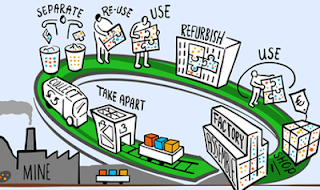Hazardous waste, good practices when managing it to stop climate change.
In cities like Delhi, more than one hundred thousand tons of domestic garbage are produced every day, more or less 37 million tons per year of urban solid waste thrown in landfills, according to Greenpeace, a change in the management of hazardous waste at an industrial level is necessary, to slow down climate change , reduce their production and at the same time recover those generated. In this city, the treatment that garbage receives is reduced to leaving it in landfills or being incinerated, this generates serious damage to the Environment and therefore to the health of human beings, animals and vegetation, deteriorating life in general. These practices when it comes to disposing of waste, either by decomposing it, burying it or simply leaving it in a landfill, causes the emission of thousands of chemical, harmful and dangerous compounds that filter into the air, soils or the water, endangering all forms of life on the planet. On the other hand, there are a multitude of ...
